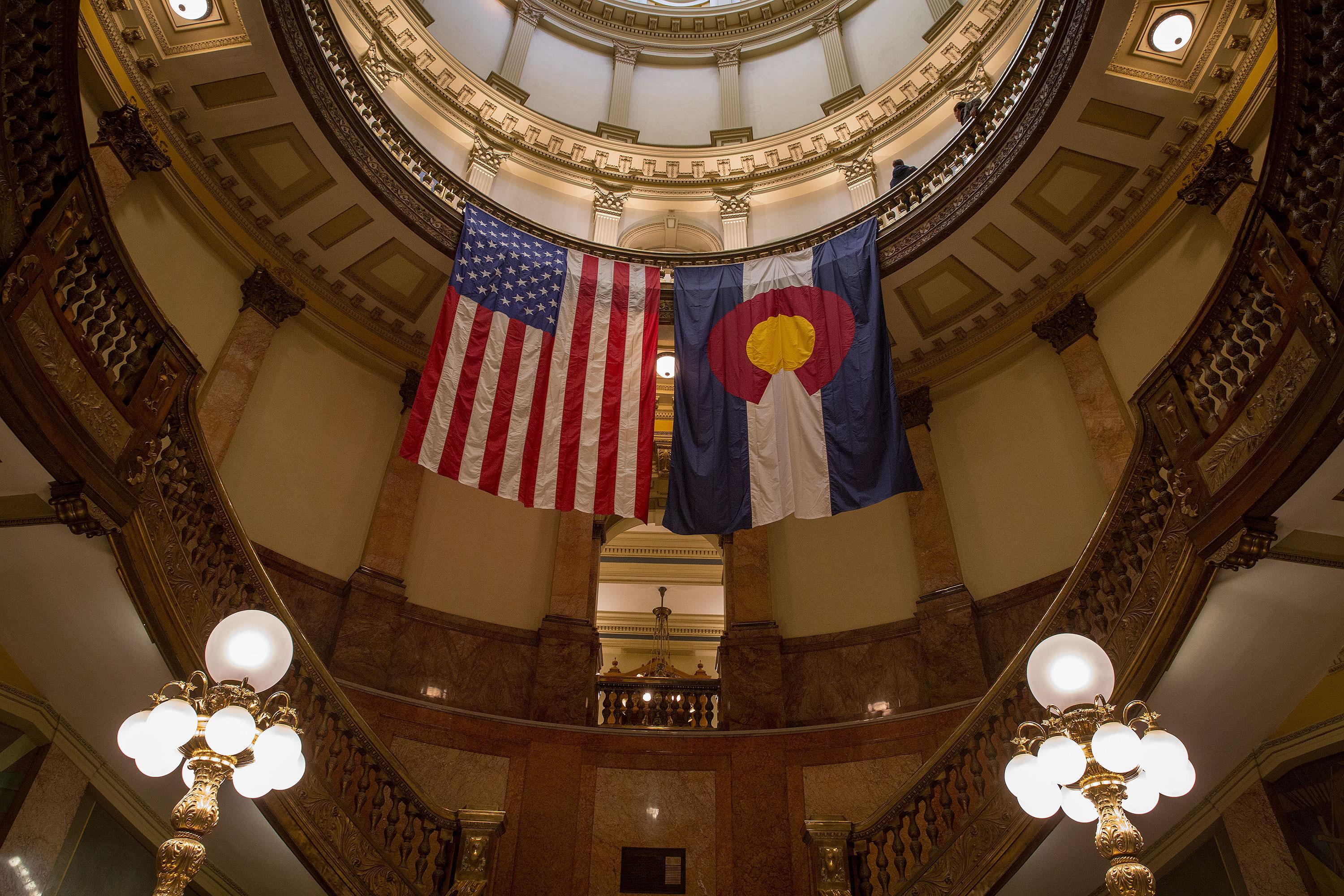

UPDATE, April 9, 2019: This bill handily passed the House Finance Committee Monday and heads to House Appropriations. With 20 days left in the legislative session, sponsors say they are optimistic it will reach Gov. Jared Polis' desk -- but it still needs to get through the Senate. It has no major opponents -- even the bail bonds industry hasn't raised any concerns. Even Republican state Sen. Vicki Marble, herself a former bail bonds business owner, told CPR News she thinks there needs to be reform in this area and is supporting this legislation.
There is a push at the state Capitol to change the criminal justice system that currently keeps some poor people sitting in jail for weeks because of minor transgressions.
Thousands of people a year get tickets for petty offenses in Colorado. They include tickets for open containers of alcohol, trespassing and traffic violations, driving on an expired license or a busted tail light, and shoplifting less than $50 worth of items.
None of these violations have any state crime or even the lowest level misdemeanor attached to them. In most cases, the violator pays their ticket and resolves the matter quickly.
Except for the poorest of the poor, who can get stuck in municipal or county jails for weeks because they can’t afford even the small bonds, sometimes set at less than $100, to get out.
This can be the result of an arrest for a small violation, such as drinking an open container of alcohol in a park, and being taken to jail. Other times, a person received a minor ticket, was assigned a future court date, and then failed to make that court date, sparking another arrest.
Last year, county judges set money bonds in nearly 13,000 petty and traffic cases in counties across the state. That figure doesn’t include bonds issued by more than 200 municipal courts, according to the American Civil Liberties Union of Colorado.
Advocates and some lawmakers aim to change this through a bill that would prohibit county and municipal judges from setting cash bonds in these types of cases.
“The people who will find some relief under this bill are people largely who have committed victimless crimes,” said Rebecca Wallace, a lawyer at the American Civil Liberties Union, which supports the bill in the legislature. “They are punished twice for their poverty: once when they’re arrested associated with it, the second time, when they prove themselves so poor … they can’t scrape together a few hundred dollars to get out of jail, while every other person who is arrested on those offenses is able to walk free pre-trial.”
House Bill 19-1225 has bipartisan sponsorship. The measure gets its first hearing in the state House on Thursday, where the judiciary committee is expected to vote.
"It is unacceptable to punish those who have the presumption of innocence simply because they’re poor,” said state Rep. Leslie Herod, of Denver, who is sponsoring the measure. "Poverty is not a crime."
Backers also argue the proposal is a way to safely decrease jail overcrowding and save counties money. It can cost between $50 and $90 per day to keep someone locked up. Colorado’s county jail population has skyrocketed and many are frequently over-capacity.
Opponents of the bill say it removes important discretion that should be in the hands of judges, and that it could violate the state Constitution’s guarantee of local control.
“The constitution is very clear that home rule municipalities are in charge of their municipal courts and how those are run and we’re concerned this violates that,” said Meghan Dollar of the Colorado Municipal League, which hasn’t yet taken a position on the bill. “We also believe there are some instances where judges should have the flexibility to make different determinations if they believe there is some need.”
This includes people who fail to appear for their court dates — known as an FTA — irking judges and slowing proceedings.
An FTA results in an arrest warrant, which can trigger a pickup from local law enforcement, a small dollar bail amount set by a local judge, and a stay in a municipal or county jail.
This happens even if the original charge was something extremely small, like a traffic violation.
The bill doesn’t change the practice of issuing an arrest warrant for a FTA, but bans judges from ever attaching a cash bond.
People who have missed court dates make up a large percentage of those who end up in jail on minor charges. Some judges have said it’s important to have the power to send someone to jail when they fail to show up for court, Dollar said.
Some local judges have moved towards getting rid of cash bail themselves, but bill proponents argue leaving the issue up to individuals is too slow and piecemeal an approach.
Elisabeth Epps runs the Colorado Freedom Fund, which pays small dollar bail amounts — up to $500 per person — for people across the state who can’t afford to get out of jail on their own. She said people unfamiliar with the system often don’t understand what kinds of offenses can land someone in jail. More than half her cases are trespassing charges.
“This is very literal. Sometimes I feel like when we have these conversations that people are exaggerating about the sleeping on the bench, but it’s no, that’s what day in and day out people are calling me for,” Epps said. “That’s what they’re arrested for.”
Epps said she got a call this week from a man who has been in the Douglas County jail since Feb. 21 on a $500 bond because he had a broken tail light.
“It’s tough to hear folks acknowledge they don’t have that little bit of money or can’t pull together that kind of money,” she said. “I’ve been broke, I’ve stayed in my car, and I don’t think there was ever a point where I probably couldn’t have somehow figured out how to get $100.”
Editor's Note: A previous version of this story referenced an incorrect bill number. We've updated the link to the proper piece of legislation.








